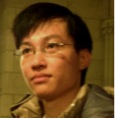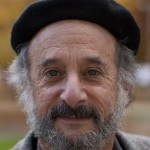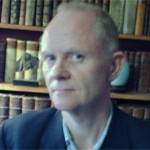The NUS Department of Philosophy will be hosting a workshop on time on Tuesday, 23 April 2013, from 2pm to 5.30pm at the Philosophy Resource Room (AS-05-23) in NUS. (More details below)

Retrocausality – What Would It Take? (2pm – 3.10pm)
by Huw Price, Bertrand Russell Professor of Philosophy and a Fellow of Trinity College, University of Cambridge
Abstract: Some writers argue that retrocausality offers an attractive loophole in Bell’s Theorem in QM, allowing an explanation of EPR-Bell correlations without “spooky action-at-a-distance.” This idea originated more than a decade before Bell’s famous result, when de Broglie’s student, Olivier Costa de Beauregard, first proposed that retrocausality plays a role in EPR contexts. The proposal is difficult to assess, because there has been little work on the general question of what a world with retrocausality would “look like” — what kinds of considerations, if any, would properly lead to the conclusion that we do live in such a world. In this talk I discuss these general issues, with the aim of bringing the more specific question as to whether quantum theory implies retrocausality into sharper focus than has hitherto been possible.
 About the Speaker: Huw Price is Bertrand Russell Professor of Philosophy and a Fellow of Trinity College at the University of Cambridge. He was previously ARC Federation Fellow and Challis Professor of Philosophy at the University of Sydney, where from 2002—2012 he was Founding Director of the Centre for Time. In Cambridge he is co-founder, with Martin Rees and Jaan Tallinn, of a project to establish a Centre for the Study of Existential Risk.
About the Speaker: Huw Price is Bertrand Russell Professor of Philosophy and a Fellow of Trinity College at the University of Cambridge. He was previously ARC Federation Fellow and Challis Professor of Philosophy at the University of Sydney, where from 2002—2012 he was Founding Director of the Centre for Time. In Cambridge he is co-founder, with Martin Rees and Jaan Tallinn, of a project to establish a Centre for the Study of Existential Risk.
His publications include Facts and the Function of Truth (Blackwell, 1988; 2nd. edn. OUP, forthcoming), Time’s Arrow and Archimedes’ Point (OUP, 1996), Naturalism Without Mirrors (OUP, 2011) and a range of articles in journals such as Nature, Journal of Philosophy, Mind and British Journal for the Philosophy of Science. He is also co-editor (with Richard Corry) of Causation, Physics, and the Constitution of Reality: Russell’s Republic Revisited (OUP, 2007). His René Descartes Lectures (Tilburg, 2008) will shortly appear as Expressivism, Pragmatism and Representationalism (CUP, 2013), with commentary essays by Simon Blackburn, Robert Brandom, Paul Horwich and Michael Williams.
He is a Fellow of the British Academy, a Fellow and former Member of Council of the Australian Academy of the Humanities, and a Past President of the Australasian Association of Philosophy. He was consulting editor for the Stanford Encyclopedia of Philosophy from 1995–2006, and is an associate editor of The Australasian Journal of Philosophy and a member of the editorial boards of Contemporary Pragmatism, Logic and Philosophy of Science, the Routledge International Library of Philosophy, and the European Journal for Philosophy of Science.
–
The Modal Argument Against Temporal Parts (3.15pm – 4.20pm)
by Kenneth Chong, M.A. Student, Department of Philosophy, National University of Singapore
Abstract: One version of the modal argument against temporal parts works in the following way. Assume there are temporal parts. Let ‘D’ be a proper temporal part of ‘Descartes’. Then we have the following inconsistent triad: i) D ≠ Descartes; ii) □ (D ≠ Descartes) (this follows from i) and the principle of the necessity of distinctness); and iii) ◊ (D = Descartes).
Friends of temporal parts have generally been supportive of counterpart theory in dealing with the modal argument against temporal parts. In this paper, I will argue that the counterpart-theoretic solution as advanced by Sider in his book Four-Dimensionalism does not work. Sider’s proposed solution seeks to undermine an argument for ii) above. I will argue, however, that given the flexible nature of counterpart theory, his argument against ii) does not work. Consequently we can still derive a contradiction by assuming that there are temporal parts. Counterpart theorists who are also perdurantists need not fret too much, however. In the course of this paper I will briefly mention one other counterpart-theoretic response. If it is a workable response, then a corollary that falls out from this paper is that counterpart theorists who seek to defend the idea of temporal parts against the modal argument would do well to refocus their attention from Sider’s proposed counterpart-theoretic response to this other counterpart-theoretic response.
 About the Speaker: Kenneth is currently pursuing his MA at NUS, where he is receiving some pressure not to be a physicalist under the supervision of his supervisor. In his free time, Kenneth enjoys playing all sorts of games, which might help explain his interest in Philosophy. He also enjoys writing plays, and has recently been published in Voices Clear and True (Vol. 1), a collection of new Singaporean plays.
About the Speaker: Kenneth is currently pursuing his MA at NUS, where he is receiving some pressure not to be a physicalist under the supervision of his supervisor. In his free time, Kenneth enjoys playing all sorts of games, which might help explain his interest in Philosophy. He also enjoys writing plays, and has recently been published in Voices Clear and True (Vol. 1), a collection of new Singaporean plays.
–
Relativity and Experience (4.25pm – 5.30pm)
by Michael Pelczar, Associate Professor, Department of Philosophy, National University of Singapore
Abstract: Human experience is atomic, in the sense that it ultimately consists of experiences that do not themselves consist of further experiences. Like all conscious experiences, atomic experiences exist absolutely: if any complete and accurate description of the world describes it as including some conscious experience, then every complete and accurate description of the world describes it as including that experience. I argue that these considerations place severe constraints on how our atomic experiences can occur in relativistic spacetime. Specifically, I argue that an atomic experience can occur in relativistic spacetime only as a momentary and unextended point-event. This is bad news for physicalists, but good news for phenomenalists.
 About the Speaker: Michael Pelczar is an Associate Professor who joined the Philosophy Department at NUS in 2001. He previously taught at the University of Arizona in Tucson. He received his PhD from the University of Virginia. He is originally from Chestertown, Maryland.
About the Speaker: Michael Pelczar is an Associate Professor who joined the Philosophy Department at NUS in 2001. He previously taught at the University of Arizona in Tucson. He received his PhD from the University of Virginia. He is originally from Chestertown, Maryland.
 Hong Yu Wong heads the Philosophy of Neuroscience Group at the Werner Reichardt Centre for Integrative Neuroscience, an excellence cluster at the University of Tübingen. He is also a faculty member of the Philosophisches Seminar and the Max Planck Neural and Behavioural Graduate School at the University of Tübingen. His primary research interests concern the relations between perception and action, and the role of the body in structuring these relations.
Hong Yu Wong heads the Philosophy of Neuroscience Group at the Werner Reichardt Centre for Integrative Neuroscience, an excellence cluster at the University of Tübingen. He is also a faculty member of the Philosophisches Seminar and the Max Planck Neural and Behavioural Graduate School at the University of Tübingen. His primary research interests concern the relations between perception and action, and the role of the body in structuring these relations.









